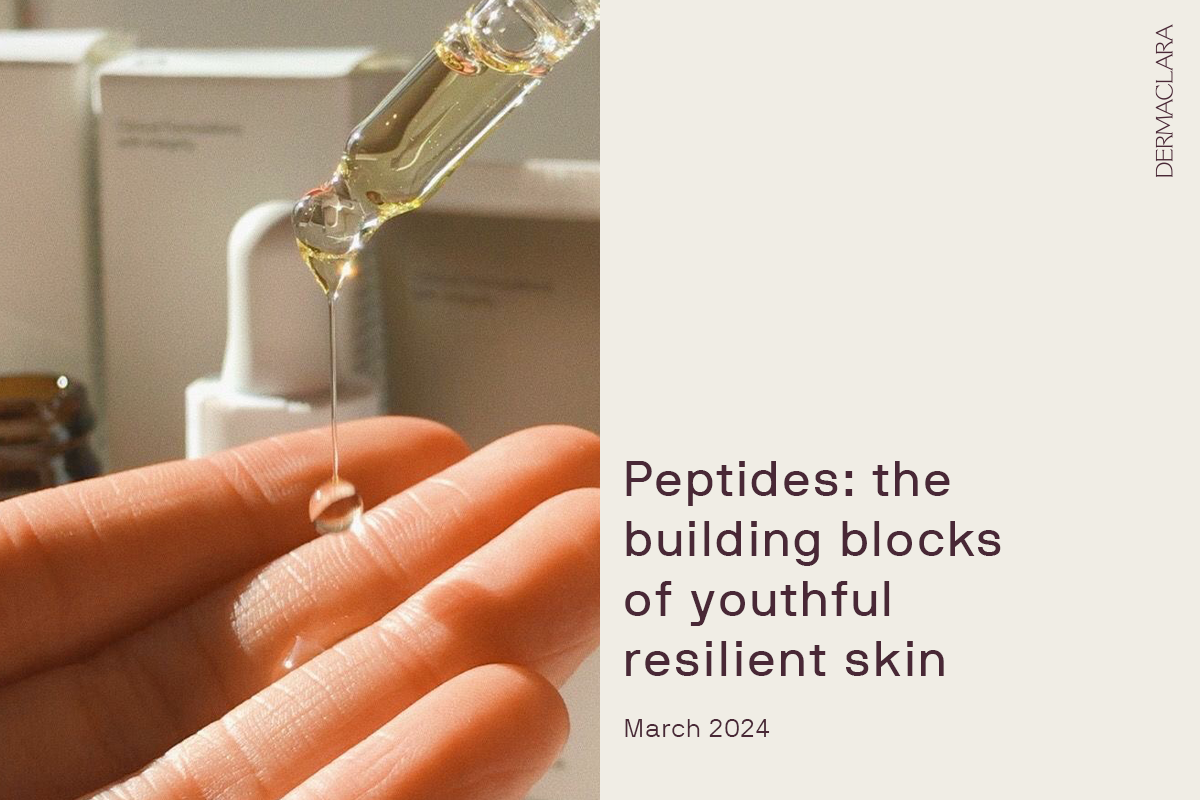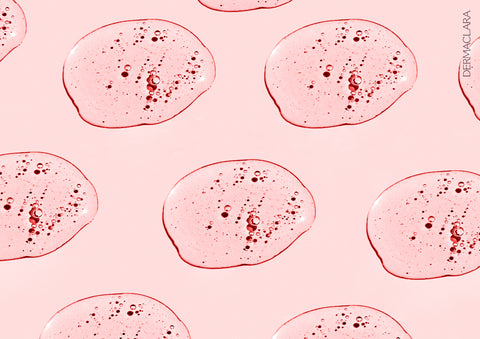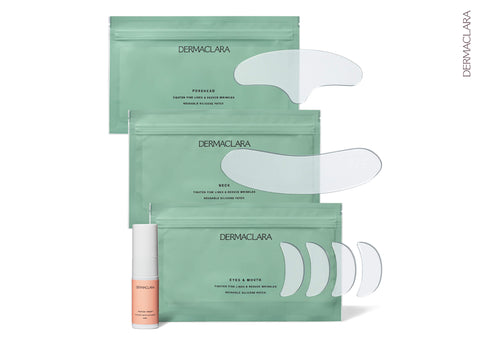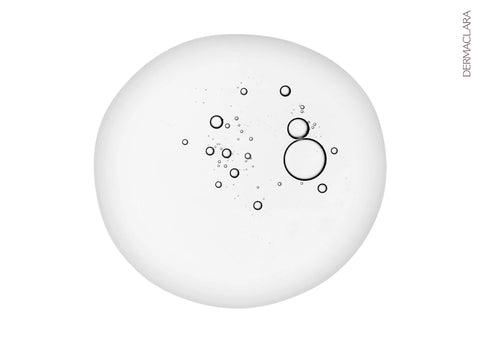Peptides: The Building Blocks of Youthful, Resilient Skin

As peptides slowly gain popularity among skincare lovers, one can only wonder why and what they offer that no other product can. This article breaks down the complexity behind peptides and answers commonly asked questions like “What are peptides in skin care?”
What are peptides
Before we go into complex details, what are peptides? Peptides, also called polypeptides, are short amino acid chains that serve as building blocks for certain natural proteins in the body (e.g. Collagen and Elastin.) Consistent use of peptides can plump the skin and reduce acne appearance in older people and people with acne-prone skin.
Benefits of peptides for skin
The benefits of peptides to the skin cannot be overstated. With the rise in collagen and peptide therapy, you may wonder what benefits it offers. The following are some peptides benefits:Reduces the appearance of fine lines and wrinkles
Natural collagen production responsible for skin elasticity declines when we age, pronouncing the appearance of laugh lines and wrinkles. Since collagen is a natural protein, peptides for skin can help suffice the declining collagen production to smoothen the skin and improve one's appearance.
Protects the skin against UV damage and oxidative stress
As the ozone layer declines, our skin is exposed to a harmful amount of ultraviolet rays that can worsen hyperpigmentation, cause melasma, and even skin cancer. Peptides in skincare can form a barrier that prevents the entry of UV rays onto the stratum corneum to prevent aging and other effects caused by UV radiation.
Possibly treat acne
Some peptides have antimicrobial properties that destroy acne-causing bacteria that clog your pores to trigger the immune system and form pimples.
Fade acne scars
Collagen is an essential protein found in healed wounds. Hence, certain peptide moisturizers can help fade the appearance of acne scars and even heal minor injuries.
Peptides for anti aging
Collagen peptides and Argireline are popular peptides for anti-aging and are common peptide components in peptide therapy. These peptides promote and maintain the skin elasticity that declines when we age.Types of peptides
There are two major classifications of peptides –Natural and synthetic peptides.Natural peptides
Natural peptides are found in foods like milk and are also produced in the body by enzymes responsible for degrading proteins in food particles into peptide chains. These peptides act as growth factors and hormones when needed and are important for essential bodily functions like cell metabolism and communication.
Synthetic peptides
Synthetic peptides are developed in the laboratory for medical and research purposes. They are produced by copying and replicating the genetic information and functionality of natural peptides and are sometimes re-engineered to act more efficiently than natural peptides. There are hundreds of synthetic peptides and they have complex names, so it can be difficult to know them all or even locate them in certain skin products. The following are different types of peptides (synthetic):
- Palmitoyl Hexapeptide-12, a peptide that promotes skin firmness.
- Palmitoyl tripeptide-5 & Palmitoyl tetrapeptide-7 have exfoliating properties that promote skin renewal.
- Acetyl hexapeptide-37 encourages skin moisture retention and hydration.
- Palmitoyl tetrapeptide-10 reduces redness caused by trauma to the skin.
- Tridecapeptide-1 promotes a youthful glow and helps fade frown lines and wrinkles.
Can you use peptides and retinol together?
Peptides and retinol work well and even complement each other. Since retinol can cause sensitivity or irritation in certain skin types, peptides can help strengthen the skin barrier and reduce irritation. To apply both products simultaneously, we advise you to apply retinol first before applying your peptide-based product. O, at best, choose a skin formation that contains both retinol and peptides.Can you use peptides and vitamin C together?
Peptides and vitamin C also work well; however, using peptides with alpha hydroxy acid (AHA) reduces its potency. Both skin ingredients brighten and strengthen the skin barrier against external contaminants.The effectiveness of using peptides and Vitamin C depends on your skin type. For instance, people with sensitive skin may experience redness or increased sensitivity. We advise you to seek your dermatologist's input before combining both products.

Can you use peptides and hyaluronic acid together?
Peptides and hyaluronic acid are safe to use. The duo makes a potent skin product that promotes collagen production and pumps the skin, exposing your youthful glow.Can you use niacinamide and peptides together?
Niacinamide and peptides can be used together as the combined components produce great results. Combining niacinamide with peptides will cause little to no reaction and also hydrate and protect the skin. Peptides will help repair skin texture to improve its appearance while niacinamide will use its brightening humectant properties to lock skin moisture and create a protective barrier.
Amino acids vs Peptides vs Proteins
Amino acids, peptides, and proteins are common key ingredients often compared to one another. Although they are often regarded as processed or semi-processed versions of each other, there are still many differences between them.Amino acids are the foundation of the building blocks for protein. They are also essential for maintaining healthy skin as certain amino acids (e.g. Serine) help the skin retain moisture. Amino acids also repair damages caused by forced trauma to the skin via collagen synthesis and production.
The main difference between Amino acids vs Peptides is that the latter is a complex compound containing a series of short chains of amino acids that are linked together by peptide bonds. Since they are also amino acids, they perform similar functions by prompting skin repair. Peptides (e.g. Argireline) also reduce the appearance of wrinkles and frown lines by controlling facial muscles.
Proteins are complex amino acid molecules and are less commonly used in skincare production. However, they contribute to our health. For instance, Collagen is essential to maintain skin elasticity and resilience.
Where to buy peptides
If you are looking for where to buy peptides to enjoy their anti-aging benefits, there are many places, both physical and online, to visit.Many online retail stores sell a wide range of cosmetic and skincare products that have products formulated wholly or partly with peptides. You can also walk into the nearest drugstore to choose a peptide-infused product from the many selections of skincare. Another guaranteed place to buy peptides is by visiting your dermatologist, there you can request for peptide-infused products that can be used alongside other skincare products.
Leave a comment